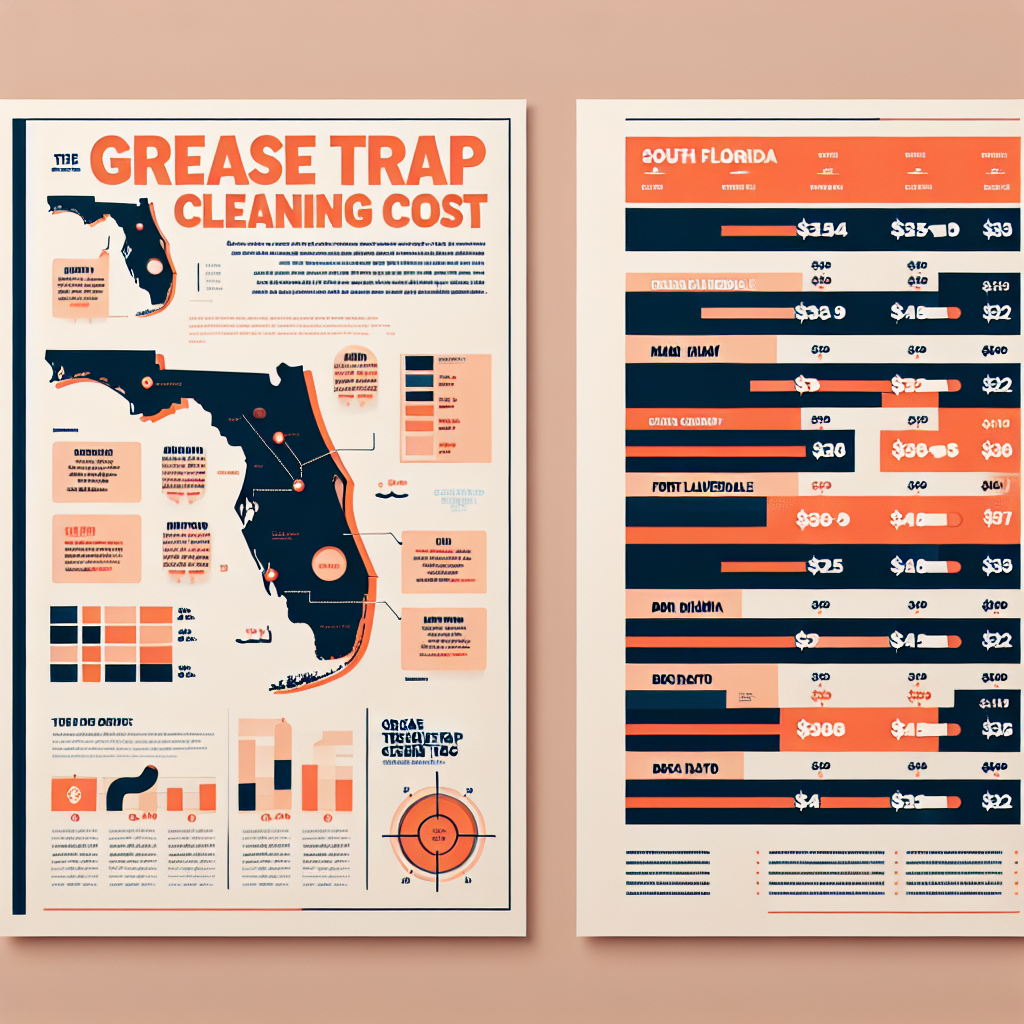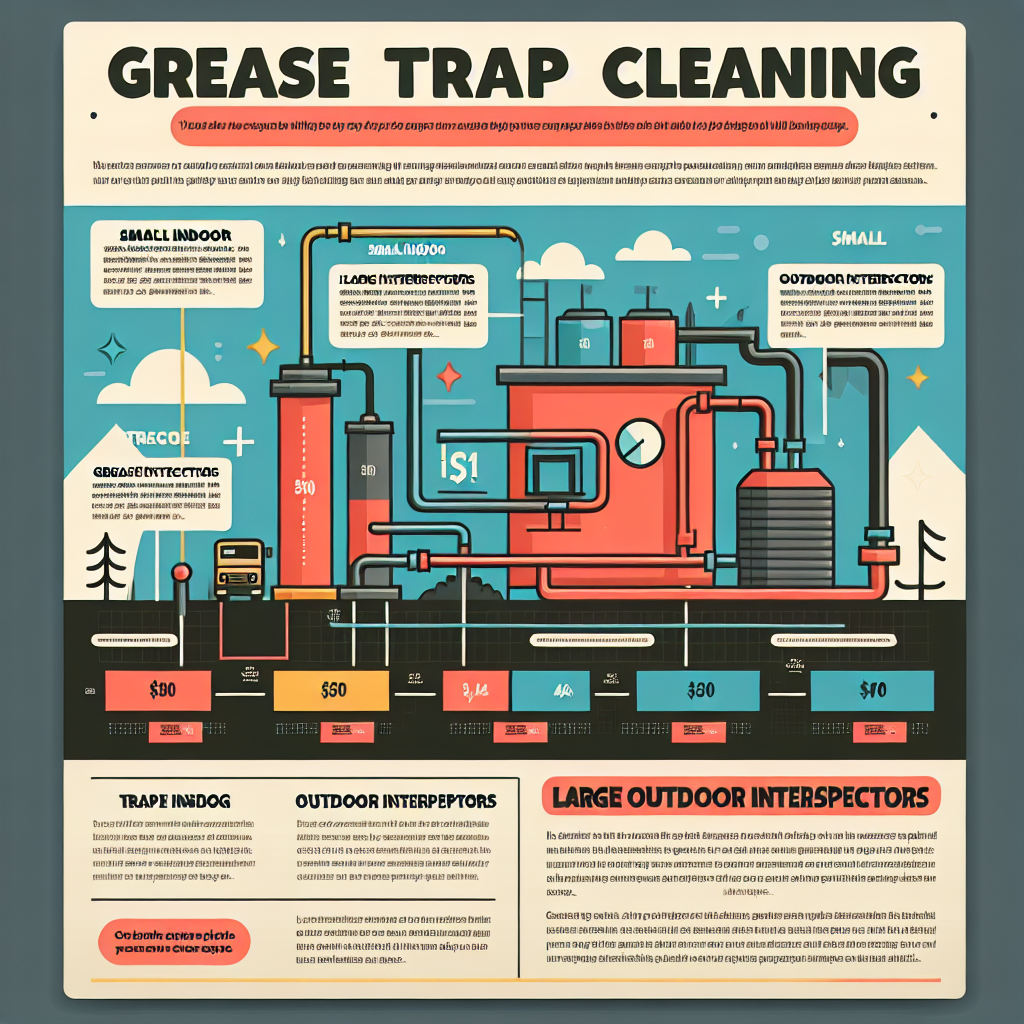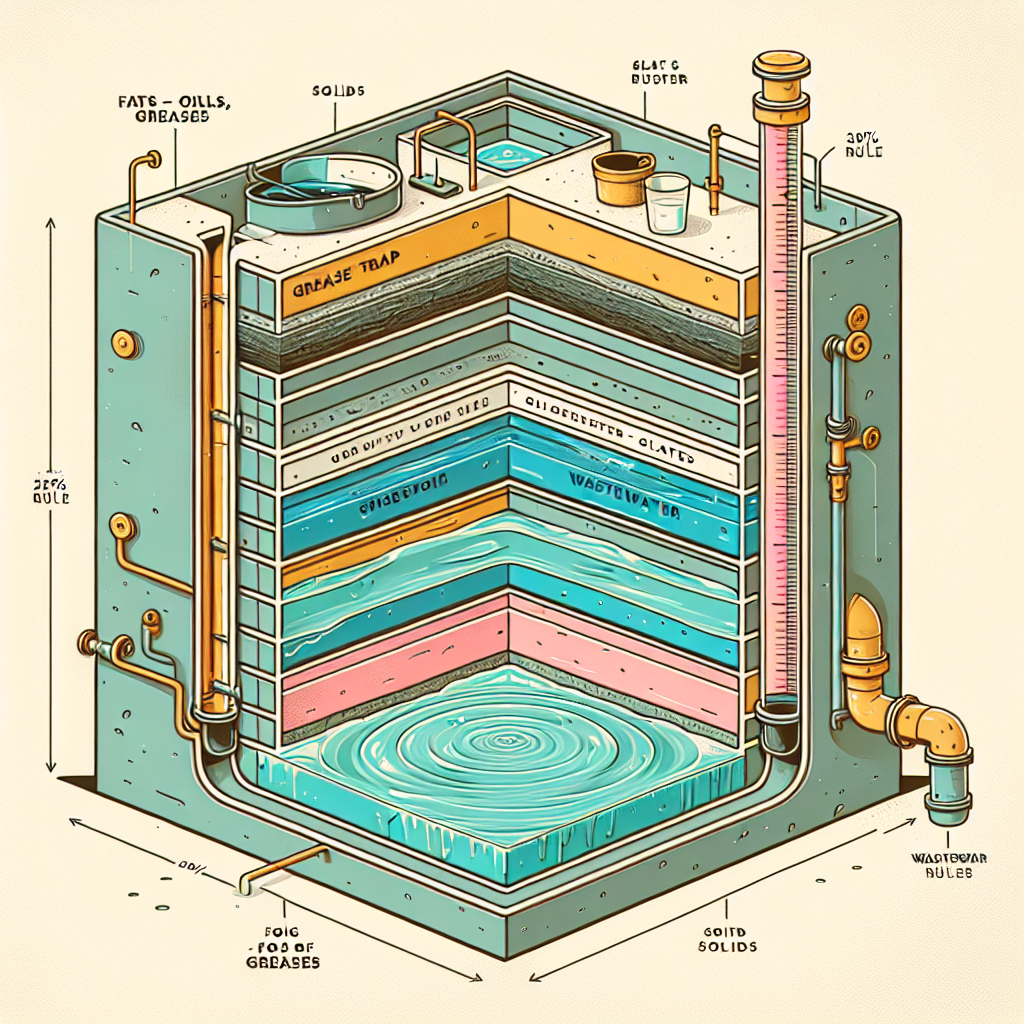Miami Grease Trap Regulations: What Changed in 2024
Complete guide to miami grease trap regulations: what changed in 2024 for South Florida restaurants.
We Handle Everything For You
We handle all the sourcing, negotiations, and logistics to find you the best grease trap service provider at the cheapest cost in your area.
Miami Grease Trap Regulations: What Changed in 2024
Miami Grease Trap Regulations: What Changed in 2024
In 2024, significant updates to Miami's grease trap regulations were introduced, impacting restaurant owners across Miami-Dade County. Understanding these changes is crucial for maintaining compliance and avoiding hefty penalties. This guide provides a detailed overview of the new regulations, compliance requirements, and cost implications for Miami restaurants.
Understanding Miami-Dade Grease Trap Requirements
Who Needs Grease Traps in Miami-Dade?
All food service establishments in Miami-Dade County are required to install and maintain grease traps to prevent fats, oils, and grease (FOG) from entering the sewage system. This includes restaurants, cafes, and any facility that prepares food.
GDO Permit Requirements
The Grease Discharge Operating (GDO) permit is mandatory for all establishments with grease traps. The permit process involves:
DERM Enforcement Procedures
The Department of Environmental Resources Management (DERM) enforces grease trap regulations through regular inspections and compliance checks. Non-compliance can result in fines up to $5,000.
Grease Trap Installation Requirements
Florida Building Code Compliance
Grease traps must comply with the Florida Building Code, ensuring they are correctly sized and installed to handle the volume of waste produced by the establishment.
DERM Approval Process
Before installation, plans must be submitted to DERM for approval. This includes:
Cleaning and Maintenance Requirements
90-Day Minimum Cleaning Schedule
Grease traps must be cleaned at least every 90 days or when the trap reaches 25% of its capacity, whichever comes first.
Professional Service Requirements
Cleaning must be performed by licensed professionals who can provide the necessary documentation for compliance.
Record Keeping and Reporting
Required Documentation
Restaurants must maintain records of all cleaning and maintenance activities. This includes:
DERM Online Reporting System
Records must be submitted to DERM through their online reporting system, ensuring transparency and ease of access during inspections.
DERM Inspections and Enforcement
Inspection Procedures
DERM conducts regular inspections to ensure compliance. Restaurants should prepare by maintaining up-to-date records and ensuring all equipment is functioning correctly.
Common Violations
Common violations include inadequate cleaning frequency, improper waste disposal, and failure to maintain records.
Penalties and Fines
Violation Categories
Violations are categorized based on severity, with fines ranging from minor penalties to business closures for severe non-compliance.
Fine Amounts
Fines can reach up to $5,000 per violation, emphasizing the importance of adhering to regulations.
Compliance Best Practices
Regular Maintenance Schedules
Implementing a regular maintenance schedule helps prevent issues and ensures compliance with local regulations.
Staff Training Programs
Training staff on proper grease disposal and maintenance procedures can reduce the risk of violations.
Common Compliance Mistakes
Inadequate Record Keeping
Failing to maintain accurate records is a common mistake that can lead to fines during inspections.
Insufficient Cleaning Frequency
Not adhering to the 90-day cleaning requirement is a frequent violation that can result in penalties.
Getting Help with Compliance
DERM Resources and Contacts
DERM offers resources and support for businesses seeking to understand and comply with grease trap regulations.
Professional Compliance Services
Hiring professional services can ensure that all compliance requirements are met, reducing the risk of penalties.
FAQs
What are Miami grease trap regulations?
Miami grease trap regulations require all food service establishments to install and maintain grease traps to prevent FOG from entering the sewage system. Compliance includes obtaining a GDO permit and adhering to cleaning schedules.
How often should Miami grease traps be cleaned?
Grease traps in Miami must be cleaned at least every 90 days or when they reach 25% capacity, whichever occurs first.
What are the penalties for non-compliance with Miami grease trap regulations?
Penalties for non-compliance can include fines up to $5,000 per violation and potential business closures for severe infractions.
How do I apply for a GDO permit in Miami?
To apply for a GDO permit, submit an application with the required documentation to DERM. The permit must be renewed annually.
What documentation is required for grease trap compliance in Miami?
Required documentation includes service logs, compliance reports, and records of all maintenance activities, which must be submitted to DERM.
Where can I find professional grease trap services in Miami?
Professional services can be found by searching local directories or contacting DERM for a list of licensed providers.
Conclusion
Staying informed about Miami's updated grease trap regulations is essential for restaurant owners to maintain compliance and avoid costly penalties. Regular maintenance, proper documentation, and professional services are key components of a successful compliance strategy. For more detailed regulatory information, visit the [Miami-Dade County DERM website](https://www.miamidade.gov/environment/).
Related Grease Trap Resources



Need Professional Help?
Get expert grease trap services with transparent pricing and same-day availability.
Get Free Quote